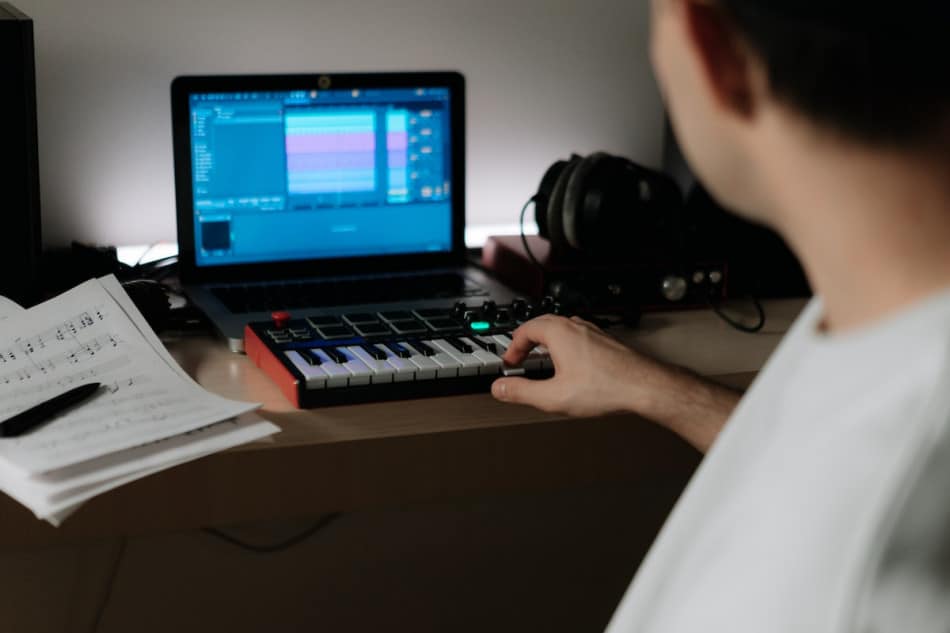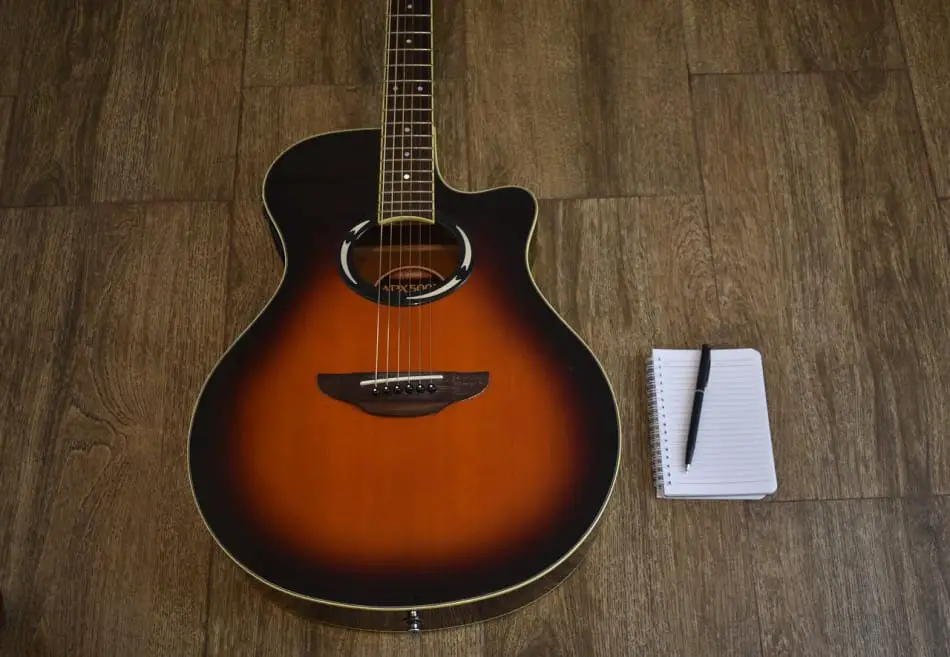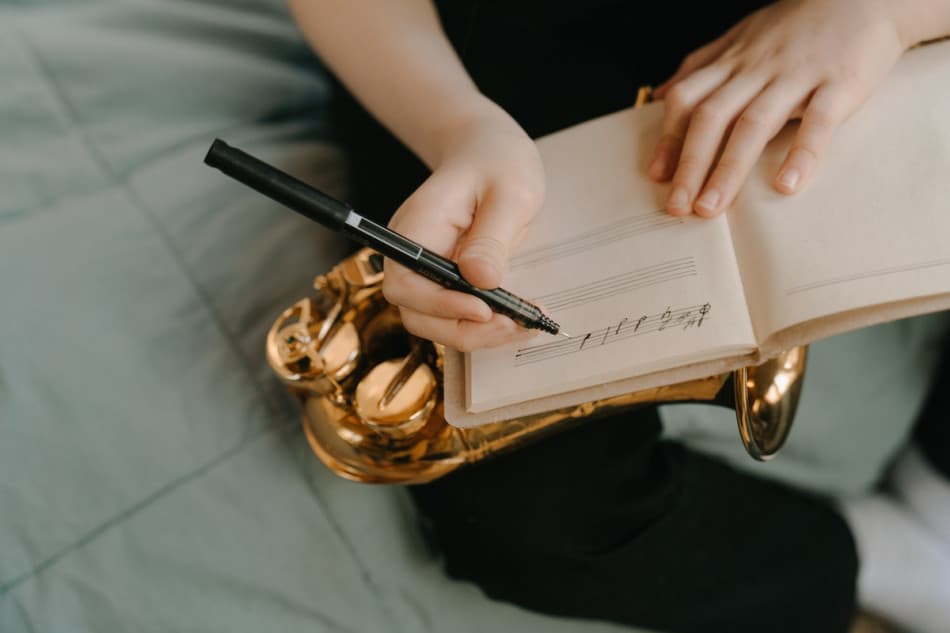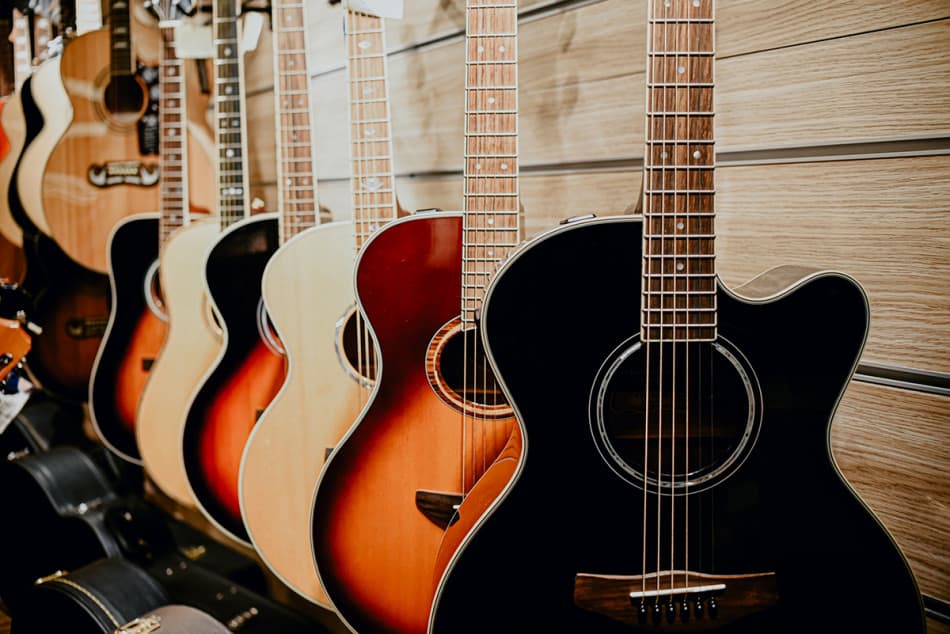Songwriting like several creative art forms involves birthing ideas. People like John Lennon, Paul McCartney, and Bob Dylan might have been born with the gift.
However, we aren’t talking about people like them here, we want to know if it is possible to teach yourself how to write songs.
Songwriting can be self-taught by identifying your favorite musical genre, as it will assist you in discovering creative inspiration. A solid understanding of musical instruments will help you get started as a songwriter, create a song title to help your lyrics take shape, and use expert songwriting composer tips and online songwriting resources.
Learning songwriting entails several factors, from song melody to lyrical structure, and the ability to create a song title. This simple guide will help you develop your songwriting skills.
We’ve also included several helpful tips that will help those born with the gift hone their skills to perfection.
How To Learn Songwriting In 5 Easy Steps
Learning to write songs is essentially learning to speak in a musical language that your intended audience can understand.
Songwriting is not something that can be learned overnight or by imitating other artists. There are several things to learn when writing songs.
-> Read Also What Is An Autodidact?
Step 1: Get Started on Songwriting
People learn to write songs in various methods, but they all follow a similar pattern.
Choose Your Preferred Genre
The first step to developing your songwriting skill is identifying your favorite musical genre. It will assist you in discovering creative inspiration.
It could be rap, soul, R&B, or reggae, but knowing your preferred genre is essential to get started with songwriting.

Own a Song Journal
For a songwriter, your song journal is your go-to book. There is no restriction on what you should write in your journal: you can write about how you feel or scribble down fleeting thoughts.
It serves as a rough draft and aids in the formation of songwriting ideas.
Learn To Play Musical Instruments
A solid understanding of musical instruments will help you get started as a songwriter. You might not know this, but playing instruments is a creative process that helps you figure out which notes work well together and which ones clash, further helping you write lyrics.
Check out the video below to get more insight on instruments every good songwriter should know how to play.
Identify Your Passion and Create a Compelling Story
Songwriting is the art of turning your passion into a musical tale that moves listeners and ignites their own inspiration.
All successful song lyrics come from the composer’s oratory imagination.
Step 2: Create a Song Title to Help your Lyrics Take Shape.
The title of your song is a principal element in songwriting. It outlines the message of your song that listeners will recall the most.
Before writing the lyrics, create a title, story, or idea that will guide the rest of the song’s composition.
To find ideas for your songwriting titles, check out this book:
Step 3: Use Songwriter Composer Tips
Most writers improve their craft by paying attention to what the pros do. You can improve your songwriting skills by listening to your favorite genre and focusing on patterns in both the lyrics and the instrumental background.
Basic Songwriter Composer Tips
Analyze popular music of your preferred genre and adapt these songwriter composer tips to your songwriting:
- Make a list of words that relate to your song and use them throughout the song to stay consistent with your theme.
- Define the layout and order of your song. A typical songwriting layout is as follows: Intro, Verse, Chorus (hook), and Outro, in that order.
- Pay close attention to your chorus; it should be memorable, catchy, and simple so that your audience can simply sing along with it.
- Make sure your song starts with a strong hook and end with an exciting, attention-grabbing verse.

Parts and Structures of Songwriting
A typical song structure comprises of the following elements:
Intro: This is the beginning of the song. It sets the intro and flow of the song
Verse: This supports the introduction and sets the theme of the song leading to the chorus
Pre-Chorus: A lift used by composers to reinforce the lyrics with a melodic link to the chorus.
Chorus: This is the hook of the song; it establishes the song’s main idea, forming the lyrical theme repeated several times during the song.
Bridge: This is a new angle on the song’s main idea. A bridge helps break up the long lyrics of the song, giving it a fresh sound with a different meaning.
Break: It precedes the concluding part of a song and allows the singer to begin and end at a different point, providing a much-needed pause in the middle.
End: This is the closing of the song. It summarizes the entire concept of the song and ends on a positive note for the audience.
Every song is structured in this manner, but it is ultimately up to the songwriter.
There are different ways to structure a song, but they all follow a pattern of structures highlighted in the table below.
| Song Structure | Pattern | Common Examples |
| Verse – Chorus – Verse – Chorus | Verse-Chorus | “Blowin’ in the Wind” by Bob Dylan, “All You Need Is Love” by The Beatles |
| Verse – Pre-Chorus – Chorus – Verse – Pre-Chorus – Chorus | Verse-Chorus | “Smells Like Teen Spirit” by Nirvana, “Firework” by Katy Perry |
| Verse – Chorus – Verse – Chorus – Bridge – Chorus | ABABCB | “Happy” by Pharrell, “Yellow” by Coldplay |
| Verse – Verse – Bridge – Verse | AABA | “Have Yourself A Merry Little Christmas” by Hugh Martin, “Billie Jean” by Michael Jackson |
Table adapted from Careersinmusic

Step 5: Understand Your Song Melody with Related Genres
Listen to music from similar genres to better understand your song’s melody. Consider what makes their music appealing to you. Consider how their melodies inspire you and the nuances you can glean from them.
- Do these songs have many recurrent motifs?
- Are they “varied” with many parts?
- Do they show themes such as loneliness and excitement or worldly lyrics?
- Are the lyrics basic but captivating?
- What gives the song its overall “melodic” quality?
After studying these different melodies, you will understand crucial details that will aid your songwriting.
Step 6: Demo Your Song and the Lyrics You Create
Finally, share your music with family, peers, and song producers to see how others perceive your composed song and potential changes.
It’s important to sample your created song to a large audience for feedback, as knowing when to modify a song can help you grow as a songwriter.
-> Learn More about Self-Learning vs. Classroom Learning: Which Is Better?
Online Resources to Get You Started on Songwriting
Learning songwriting by yourself is a bit difficult, but if you want to be a better songwriter and are willing to put in the effort, there are a couple of online resources you can use to learn and master the basics of songwriting.

1. Online Courses
Online courses are some of the best resources for songwriting. It reviews all the elements of songwriting and tells you how to combine them into making a hit song and helpful tidbits.
Check out
- Robin Frederick’s online songwriting guide for all the songwriting resources you need.
- CAREERS IN music also has the starter pack for all online songwriting resources
– > Read also our guide of How Can I Learn Audio Engineering/Music Production On My Own?
2. Songwriting Videos
There are a couple of handy songwriting videos available to help you get started. You can learn and practice directly from songwriting masters; some good songwriting videos include:
- Songwriting Tips You Need To Know – Jake Gosling (Ed Sheeran, Shawn Mendes, Shania Twain)
- How To Write A Song | Songwriting 101
- How to Write an Effective Pre-Chorus | Songwriting | Tips & Tricks | Berklee Online
3. Songwriting Books
E-books and songwriting handbooks can help you navigate your journey as a self-taught songwriter.
Among the helpful and affordable songwriting books available on Amazon are:
- Shortcuts to Hit Songwriting Level Two: 59 Hit-Tested Skills for Crafting Contemporary Songs (Revised & Updated) – Kindle edition by Frederick, Robin. Arts & Photography Kindle eBooks @ Amazon.com.
- 100 Tips For Successful Songwriting! Chord Progressions: A Guide and Manual For All Songwriters… Chording Techniques, Transposing Keys, Chord Charts, Open Chords Kindle Edition
Frequently Asked Questions

Q: Can I Learn Songwriting by Myself?
You can learn songwriting yourself if you give the time and effort required.
Motivation is also crucial to becoming a successful self-taught songwriter. However, your progress will be slow without a teacher.
Q: Is Songwriting a Difficult Task?
Songwriting can be quite tasking since it involves a high level of talent and a lot of work. Even seasoned songwriters occasionally experience songwriter’s block.
Writing a song is easier when you’re inspired or in the zone, so find your source of inspiration.
Q: Is Songwriting a Good Career Option?
Songwriting can be a lucrative career, but do not bank on it totally. It’s more like a hobby turned into a passion that you do solely for the love of music.
Most great songwriters did not make it their main source of income, it was their passion, and they kept writing songs until they received a record deal.
-> Learn more about the 7 best websites for self-learning
Final Thoughts
Songwriting is more than just crafting a melody, lyrics, and chords to create a hit single.
It is a creative process that requires skill, talent, and perseverance.
Songwriting is a daunting task, but you can become a professional songwriter with practice and hard work.
References
- https://teenswannaknow.com/songwriters-guide-how-to-teach-yourself-to-write-music/
- https://www.careersinmusic.com/songwriter/#s_how_can_i_become_a_songwriter
- https://americansongwriter.com/writers-room-can-songwriting-taught/
- https://www.quora.com/How-do-I-self-learn-songwriting
- https://www.connollymusic.com/stringovation/6-steps-to-learning-basic-song-writing
- https://producerhive.com/songwriting/analyzing-common-song-structures/






